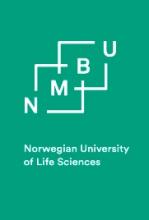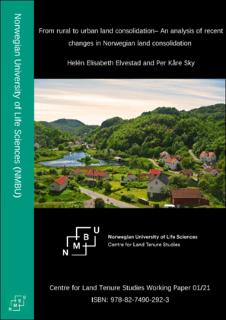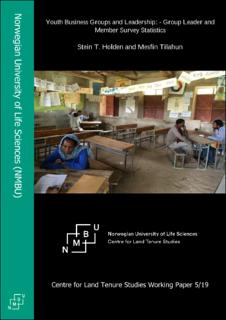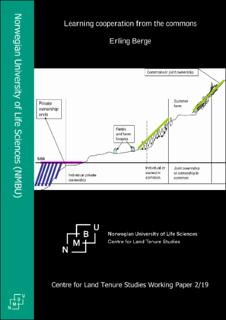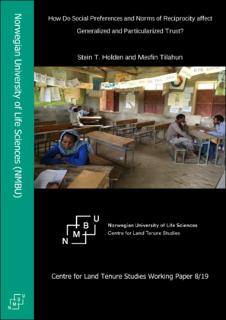Location
NMBU's mission is to contribute to the well-being of the planet. Our interdisciplinary research generates innovations in food, health, environmental protection, climate and sustainable use of natural resources.
About NMBU
NMBU's research is enabling people all over the world to tackle the big, global challenges regarding the environment, sustainable development, how to improve human and animal health, renewable energy sources, food production, and land- and resource management.
Members:
Resources
Displaying 1 - 5 of 98Land consolidation cases relating to grazing arrangements
Land consolidation courts deal with cases where the relationship between holders of grazing rights needs be regulated, but also where the rights holders are competing with other potential land uses, such as building holiday cabins, forestry, hunting, etc. These cases are governed by the provisions of sections 3-8 and 3-10 of the Land Consolidation Act.
From rural to urban land consolidation– An analysis of recent changes in Norwegian land consolidation
In most countries, land consolidation was first introduced in rural areas, with legislation suitable for urban areas being drafted at a later date. This is also true of Norway. The first evidence of urban competency in the legislation is found in the Land Consolidation Act from 1950. It is important to note that in Norway land consolidation remains the exclusive province of the court system. This, as far as we know, is unique for Norway.
Youth business groups and leadership : group leader and member survey statistics
This working paper is an output from the research project “Youth Business Groups for Sustainable Development: Lessons from the Ethiopian Model” that is funded by Research Council of Norway under the NORGLOBAL2 research program for the period 2019-2022. This working paper provides a summary of baseline survey data collected in the period January-May 2019 primarily from 2427 sampled members of 246 active youth business groups in four districts in the Tigray Region of Ethiopia.
Learning cooperation from the commons
The paper discusses the link between commons as they might have been used in
prehistoric Norway and the rules concerning the exploitation of the commons as
found in the oldest known legislation for regions of Norway, Gulating Law and
Frostating Law. One clear social dilemma has been identified: the setting of a
common date for moving animals from the home fields up to the summer farms
and home again in the fall. The problem was obvious and the solution not
particularly difficult to institute. Many more problems were of course present,
How do social preferences and norms of reciprocity affect generalized and particularized trust?
We study how social preferences and norms of reciprocity are related to generalized and particularized trust among members of youth business groups in northern Ethiopia. Members of these groups are recruited among land-poor rural youth. The Ethiopian government promotes youth employment among land-poor rural youth by allocating them rehabilitated communal lands for the formation of sustainable businesses. The groups are organized as primary cooperatives, elect their own board, make their own bylaw and prepare a business plan that has to be accepted by the local government.

